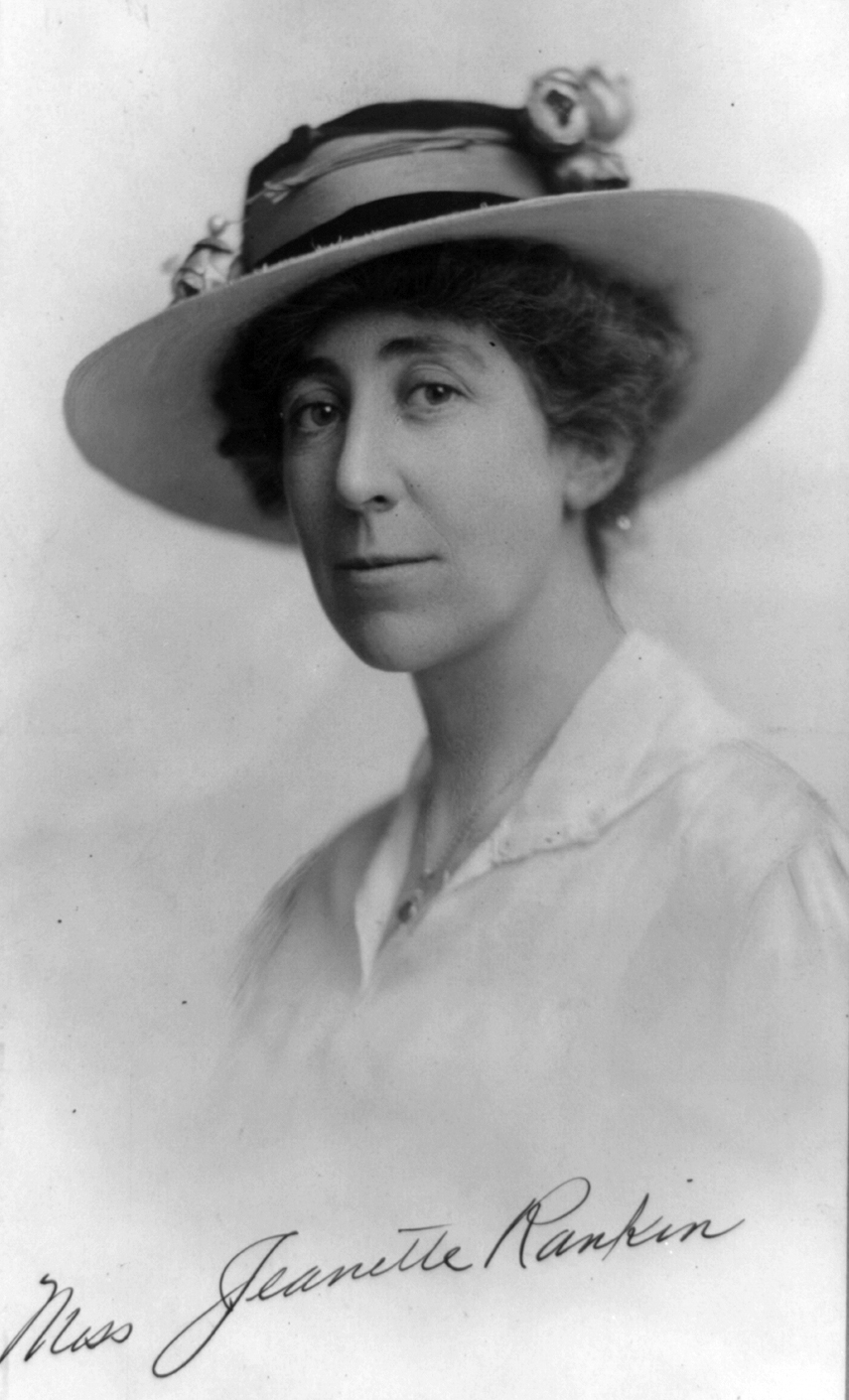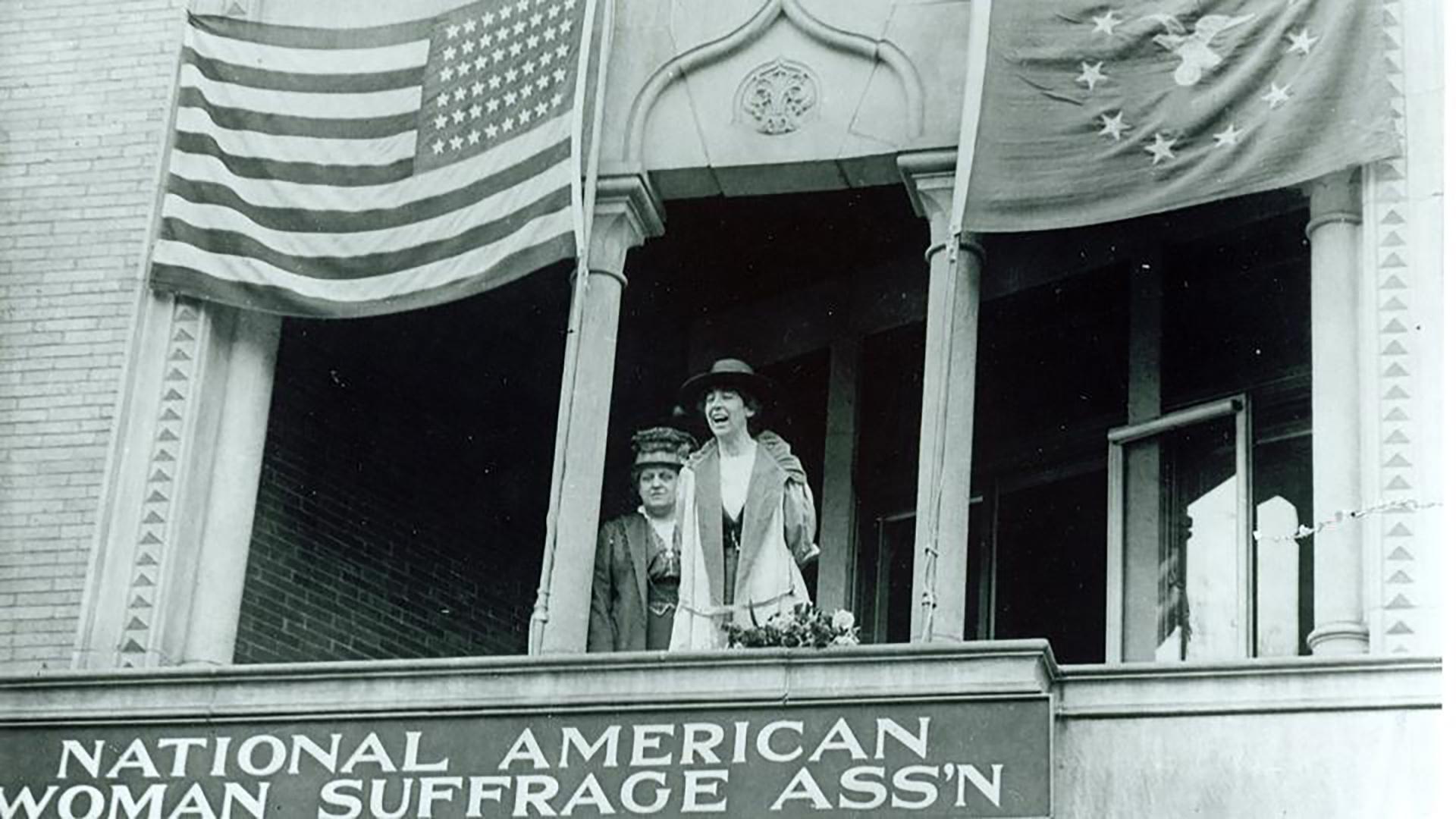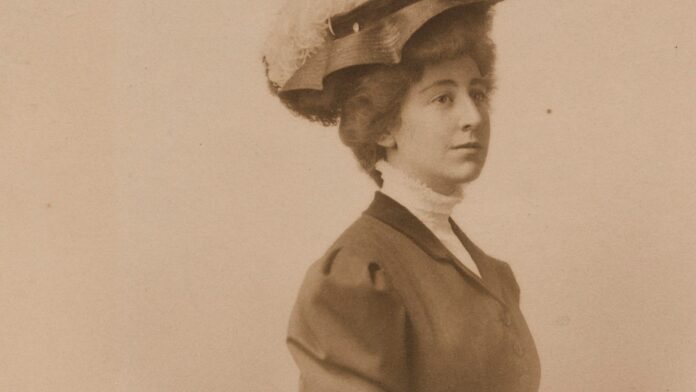Jeannette Rankin was the first woman elected to Congress, serving as a representative from Montana in 1916. She made history even before women had nationwide voting rights in the United States.
Jeannette Rankin’s election to the U. S. House of Representatives marked a significant milestone in the fight for gender equality and paved the way for future generations of women in politics. A lifelong pacifist and advocate for social reform, Rankin’s work transcended her historical first.
Her dedication to peace, women’s suffrage, and workers’ rights reflected her commitment to progressive change. Rankin’s legacy continues to inspire, demonstrating the profound impact that one person can have on a nation’s political landscape. Her tenure set a precedent, symbolizing the potential of women to shape policy and take on key roles in governance, even in an era when societal norms were vastly different. Her political career remains a touchstone for those who champion the role of women in leadership positions.

Credit: www.villagepreservation.org
Jeannette Rankin’s Early Life
Jeannette Rankin’s early years tell a tale of determination, compassion, and the spirit that led her to become a pivotal figure in American history. Her journey from a Montana homestead to the halls of Congress inspires those who learn about her life and achievements. Let’s delve into the beginnings of the first woman elected to Congress.
Born In Montana
Jeannette Rankin entered the world on June 11, 1880. Her birthplace was a prairie ranch near Missoula, Montana, a state known for its vast landscapes and rugged independence. The eldest of seven children, Jeannette was keenly aware of the social and political issues affecting her community from a young age. She witnessed firsthand the imperative of hard work and perseverance on her family’s ranch.
Education And Social Work
Education played a significant role in shaping Jeannette’s life. Her pursuit of knowledge took her to the University of Montana, where she studied biology. A strong desire to improve society led Jeannette further afield to the New York School of Philanthropy and then to the University of Washington, where she impacted social work.
Advocacy and social justice were central to Jeannette’s career. After her academic pursuits, she dedicated her efforts to social work. Her outstanding leadership skills soon propelled her towards political activism. She championed causes such as women’s suffrage and social welfare, setting the stage for her historic political career.
Political Ambitions Ignited
The journey of the first woman elected to Congress began amidst a transformative era for women’s rights. Born from a fervent desire to impact change, her ascent to power challenged societal norms and reshaped the political landscape.
Influence Of The Suffrage Movement
The battle for women’s vote lit a fire under countless women. Montana’s Jeannette Rankin, the pioneering lady in question, was no different. Her step into politics was greatly molded by the era’s suffrage movement.
- Women nationwide fought for their rights.
- They marched, protested, and gave speeches.
- Their actions sparked conversations in homes and halls of power alike.
- Jeannette Rankin, inspired by this wave of activism, committed to making a difference on a larger scale.
State Politics Engagement
Early involvement in state politics paved the way. It honed her political acumen. Rankin’s advocacy and public speeches earned her a trusted voice in Montana.
| Year | Milestone |
|---|---|
| 1910 | Social Work Engagement |
| 1912 | Women’s Suffrage Lobbyist |
| 1916 | Elected to Congress |
Her relentless dedication set the stage for a historic victory. In 1916, Rankin made headlines by becoming the first woman to hold federal office in the United States.
Historic Congressional Election Of 1916
In 1916, a monumental event reshaped the future of American politics. A woman won a seat in Congress for the first time. This victory was not just a personal win, but a symbol of the changing times and the enduring spirit of women’s suffrage.
Running For Congress
Jeannette Rankin set her sights on Congress with a clear vision in mind. Against the backdrop of World War I, her campaign brought hope of peace. Rankin’s message resonated with many, representing a voice for women across the nation yet to have the right to vote.
Her candidacy in Montana was backed by her work in social welfare and women’s suffrage. With determination and tenacity, Rankin campaigned on the promise of progress and reform.
Victory And Women’s Suffrage
Rankin’s victory on November 7, 1916, was groundbreaking. As the first woman in Congress, she carried the hopes of many. Women from coast to coast saw this win as a beacon of change in their fight for the vote.
- Rankin took her seat in Congress in 1917.
- She fought tirelessly for women’s rights.
- Her work contributed to the passing of the 19th Amendment.
In this era, the groundbreaking election of 1916 will forever be etched in history. It marked a surge in the women’s suffrage movement that changed the United States forever.
Tenure In The U.s. House Of Representatives
The first woman elected to Congress, Jeannette Rankin, served as a representative from Montana. She forged a path for women in U.S. politics. Her tenure in the U.S. House of Representatives was notable for her dedication and legislative actions, which resonate through history.
First Acts In Congress
Rankin’s early days in Congress were filled with significant actions. Her commitment to social reforms was evident. She championed various causes that advanced the welfare of women and children.
- Child welfare legislation saw staunch support from Rankin.
- She also fought for women’s suffrage, seeing it as crucial to democracy.
One of her most memorable votes was against entering World War I, showcasing her commitment to peace.
Stance On World War I
Jeannette Rankin took a firm pacifist position during her tenure in Congress. Her stance on World War I defined her political career.
- She was one of the 50 representatives who voted against the war in 1917.
- This vote reflects her consistent pacifism and advocacy for peace.
Her decision resonated with many but also faced criticism amidst the patriotic fervor of the time. Rankin stood strong in her beliefs, emphasizing the need for conflict resolution through non-violent means.
Legacy And Impact
Jeannette Rankin’s election to Congress in 1916 marked a watershed moment in American political history. As the first woman to hold federal office in the United States, Rankin’s legacy extends far beyond her groundbreaking election. Her impact on advocacy for peace, civil liberties, and the role of women in politics persists to this day.
Advocacy For Peace And Civil Liberties
Jeannette Rankin was a fierce advocate for peace. Her stance on non-intervention set a precedent for future generations. Rankin was one of the few to vote against entering both World Wars, reflecting her strong commitment to pacifism. She also worked tirelessly to defend civil liberties and stood against measures that she felt infringed upon them. Her dedication to these causes was unwavering and remains inspirational for peace activists worldwide.
Inspirational Figure For Women
Rankin’s election to Congress opened the doors for the future generations of women in politics. She proved that women belong in the highest echelons of government. Her passion and persistence helped to catalyze the women’s suffrage movement, leading to the eventual passage of the 19th Amendment. Her role as a trailblazer is celebrated and continues to motivate women to pursue careers in public service.
Jeannette Rankin’s legacy is multifaceted and profound. From her peace advocacy to her historic role in women’s suffrage, she laid the foundation for the modern era of civic engagement among women. Rankin’s resolve and conviction inspire leaders and activists to strive for a world where peace and equality reign supreme.

Credit: nationalwomenshistoryalliance.org
Second Congressional Term And Beyond
The Second Congressional Term and Beyond of the first woman elected to Congress marks a period of significant historical impact. This determined leader’s political journey did not end with just one term. She continued to blaze trails, attracting nationwide attention for her passionate advocacy and controversial stands on critical issues of her time.
Return To The Political Arena
After a brief hiatus, the pioneering congresswoman made a dramatic comeback. Her return to Congress was met with enthusiasm by supporters. With renewed vigor, she championed legislation that reflected her commitment to peace and social justice.
- Advocated for child welfare programs
- Fought for gender equality in the workforce
- Supported fair labor standards
Opposition To World War Ii
As tensions rose globally, her stance on World War II remained resolute. The congresswoman stood firm against the popular tide, emphasizing the cost of war and the need for diplomacy. Her pacifist views led to her being the sole vote against entering the war, a move that marked her political career with both criticism and admiration.
| Year | Event | Impact |
|---|---|---|
| 1941 | Vote Against World War II | Polarized public opinion |
Commemorating Jeannette Rankin
Jeannette Rankin was a trailblazer in American politics. As the first woman elected to the United States Congress, she changed the course of history. Her commitment to peace, women’s suffrage, and social justice opened doors for generations of women in politics. Today, we honor her groundbreaking achievements and enduring legacy.
Memorials And Recognitions
Rankin’s legacy is celebrated across the nation. Monuments and educational programs keep her memory alive:
- Jeannette Rankin Statue: A statue stands in the Montana State Capitol.
- Rankin Scholarship: The Jeannette Rankin Women’s Scholarship Fund supports education for low-income women.
- Congressional Record: Her speeches and votes remain archived for public access.
Ongoing Influence In Politics
Rankin’s impact echoes in today’s political arena:
- Her advocacy for voting rights shapes current discussions on voter access.
- Mentorship: She remains a role model for women eying political careers.
- Policymakers often cite her pacifist stance when debating military issues.
Rankin’s spirit of reform and equality continues to inspire new generations.

Credit: www.pbs.org
Frequently Asked Questions On Who Was The First Woman Elected To Congress
Who Was The First Woman Elected To Both Houses Of Congress?
Margaret Chase Smith was the first woman elected to both the U. S. House of Representatives and the Senate.
Who Was The First Woman Elected Senator?
The first woman elected to the U. S. Senate was Hattie Wyatt Caraway in 1932. She represented the state of Arkansas.
Who Was The First Woman To Be Elected To?
The first woman elected to the U. S. Congress was Jeannette Rankin, in 1916. She represented the state of Montana.
Who Was The First Woman To Serve As Speaker Of The House In Congress?
Nancy Pelosi made history as the first woman to serve as Speaker of the House in the U. S. Congress.
Who Was The First Female Congresswoman?
Jeannette Rankin, from Montana, holds the distinction of being the first woman elected to the United States Congress.
Conclusion
Jeannette Rankin’s historic election broke barriers, setting a precedent for women in government roles. Her legacy reminds us that progress hinges on bold first steps. Trailblazers like Rankin pave the way for future generations, proving determination can challenge the status quo and change history.
Celebrate her journey and its lasting impact on equality in politics.

